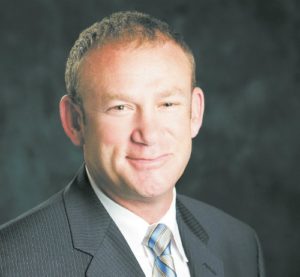
Doug Seserman
Doug Seserman, president and CEO of the Allied Jewish Federation, held a conference call with lay leaders and local agency executives Dec. 19 to discuss federations potential revenue shortfall from the collection of 2008 annual campaign pledges.
Federation typically collects approximately 88% of all campaign pledges by Dec. 31 of the first year (increasing to 97% at the end of three years).
However, this year it appears as though collections for 2008 campaign pledges may drop to as low as 75 to 80% by the end of 2008, given the current pace of payments.
The following proposed plan of action, which will be implemented pending the approval of federations coordinating council in January, positions federation to meet the challenges of fulfilling its mission in the current economy.
Phase I, already implemented:
- reduction of federation full-time employees by 15%, through job consolidation, a moratorium on filling open positions, and outsourcing some positions;
- elimination of all non-essential programs and travel;
- voluntary reduction of President and CEO Doug Sesermans compensation equal to 5% of his salary for the second half of fiscal year 2009 (January-June, 2009).
Phase II, newly implemented:
- voluntary 2% salary reduction for all federation director positions and above for the remainder of fiscal year 2009;
- further reduction of federation full-time employees by moving one staff from full-time to half-time, and by eliminating one additional half-time position;
- creating a working list of further possible cost savings to be implemented, if necessary, after January 2009.
Allocations hold back plan (pending coordinating council approval):
- introduce holdback of distributions to local organizations equal to approximately 10% of their 2009 allocations. This percentage could change pending the outcome of end-of-year collections efforts;
- those organizations whose allocation was $10,000 or less and have already received a lump-sum distribution in July, 2008, will not be asked to return any of those funds; but their hold back will be considered as part of the fiscal year 2010 allocation process;
- when federations collection of pledges improves, federation will re-evaluate the situation with the intent to make good on the remainder of allocations promised to the extent that collections allow.
- federation staff is preparing scenarios for reducing allocations to programs in Israel and overseas, as well, to be reviewed by the coordinating council at the January, 2009, meeting.
For a variety of reasons, such as the decline in the stock market and in distributions from donor-advised funds, the assets of the Jewish Community Foundation have decreased from $43 million one year ago to approximately $32 million today.
Federations unrestricted endowment is currently valued at approximately $4.6 million, which can be accessed in a true emergency this will only be declared following a comprehensive analysis of the situation in early 2009.
Federation has raised $185,000 toward its goal of raising a total of up to $400,000 to support its new Economic Relief Fund.
Those dollars will be distributed in 2009.
”We are grateful to our agency partners across the community for the work they are doing to meet the challenges presented by today’s unprecedented economic climate,” Seserman said.
”We applaud their efforts to continue to streamline their operations and reduce expenses whenever and wherever possible, just as we, here at federation, are doing.
”That said, our primary concern remains the projected shortfall in collections of 2008 annual campaign pledges. I cannot emphasize enough the importance of urging our donors to fulfill their commitments to our communitys 2008 annual campaign by Wednesday, Dec. 31.
”Even if they are unable to pay their pledges in-full, anything they can pay now toward their commitment would be greatly appreciated.
”The proposal to hold back distributions to local agencies because donors have not paid their pledges is an extremely difficult one,” he said.
“We remain hopeful that our collections will increase during the last week of the calendar year; unfortunately, we are no longer able to operate in a business-as-usual type of environment.
”We believe the actions we are proposing are fiscally responsible, given the current economic climate.
”We will continue to do whatever is required to meet the needs of our community until the situation improves.”
















